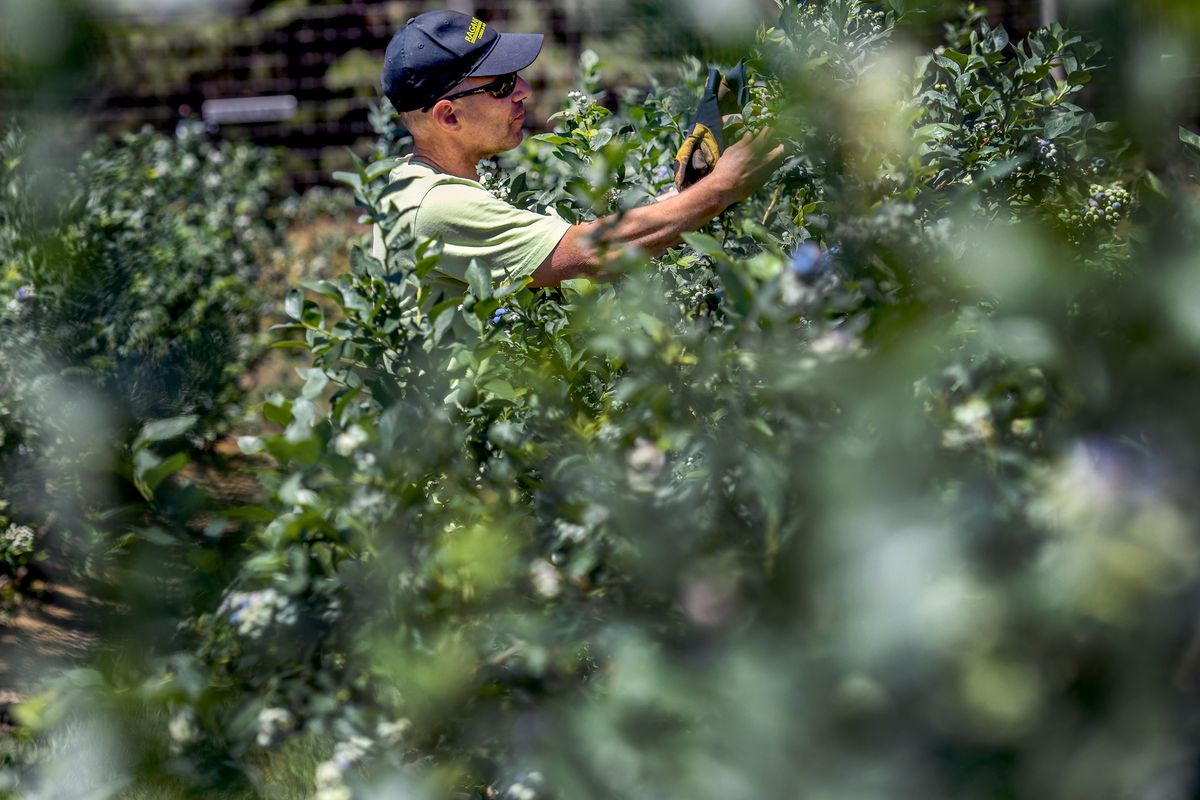‘This is the worst year’: Berry growers face new challenges in wake of scorching heat

Jane Deitz reached for one of the raspberries swaying on its bush in the 97-degree weather. A dry, brown film coated nearly half the berry’s skin.
“See, that’s what happens when they get sunburned,” she said.
After the excessive heat warning plagued the Pacific Northwest, Jane Deitz saw up-close the toll a worsening drought and high temperatures took on her family-run U-pick berry farm, Bodacious Berries, Fruits & Brews, in Mead.
“This is the worst year,” said Jane Deitz, who has been farming berries for more than 20 years. “I mean, I’ve never seen it this dusty, this dry.”
Mead reached triple-digit temperatures several days in a row during the excessive heat warning last week. The area got to 111 degrees on June 29 and hovered there for the next two days, according to data from the National Weather Service.
The unprecedented heat strains water availability, said Eli Deitz, who is Jane’s son and manages the farm’s brewing and irrigation processes. As they attempted to conserve water, he said they had to choose between crops.
That meant sacrificing some staples at the farm, such as the Christmas trees they start growing and watering in April. Eli said they considered not planting them at all, but they decided to risk it.
“Now we kind of wish we hadn’t,” he said.
Water has been a luxury on the farm since the heat wave, Jane Deitz said. She stopped watering her front lawn, opting to use the water on the public grassy area in front of the building that houses Big Barn Brewing Company.
They used tanks of water to spray their pumpkins, which normally don’t need constant watering. Berries got sunburned and ripened quickly. They rescheduled picking times for the early morning to avoid the worst of the heat.
Jane Deitz gestured to the long line of raspberry bushes, which were sparsely speckled with the pink berry.
“Usually, it’s completely full right here. They’re still tasty, they are still going to be sweet. But they are pretty small this year,” she said.
As she spoke, wind spurred a dust devil near the hops plants they grow for brewing. Jane Deitz said springtime rains normally moisten that area, but they did not get the rainfall they needed.
“The thing is, it’s only July 3,” she said. “What’s it going to look like in August? It’s going to be a long season.”
Eli Deitz said they began thinking of other ways to become more heat-resilient, including organic farming techniques. He said they would likely move away from tilling, and consider ground cover to trap moisture in the soil.
As the summers get hotter and droughts become more likely, Eli Deitz said he also would like to use automated water systems so the crops can be watered regularly and at nighttime.
“But we’re at our limit of what we can do right now,” he said.
Farmers also have a front-row seat to the first effects of climate change, Jane Deitz said. When her father-in-law owned the land before her, Jane Deitz said they experienced lovely weather, plenty of rainfall and thriving berries that practically took care of themselves.
“You know, my generation was used to having plenty,” she said. “We’re old school … and that’s not going to work anymore.”